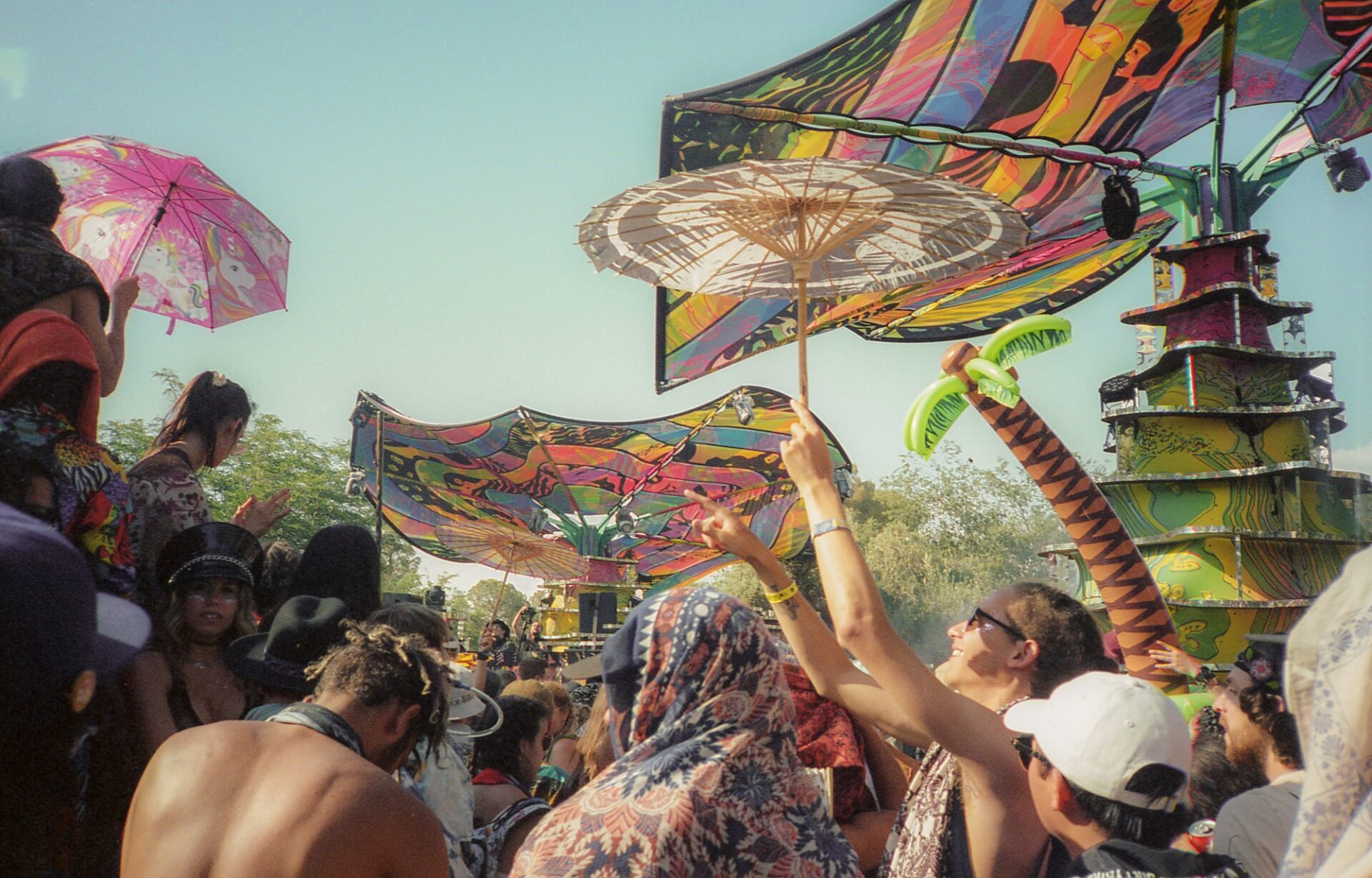
Throughout history, prohibition has proven to be ineffective at reducing the supply of substances that people still want.
Once upon a time, MDMA was legal – so what changed?
Sophie Stockman
13.7.23
MDMA is being used therapeutically in research trials around the world. And here in Australia, a major government body – the Queensland Productivity Commission – has recently called for the legalisation of MDMA for recreational use.
Currently, there is no country in the world where MDMA is legal, but this wasn’t always the case. MDMA has a history that dates back to its creation in 1912, including a time when it was being sold legally in bars and clubs.
What exactly is MDMA?
The acronym MDMA is short for 3,4-methylenedioxy-N-methamphetamine – a derivative of amphetamine and a member of the phenethylamine family of chemicals that may act as stimulants, hallucinogens, and/or entactogens.
MDMA was first developed by a German pharmaceutical company in 1912 to assist patients experiencing abnormal bleeding. MDMA later gained popularity in the 1970s and 1980s among psychiatrists who gave it to patients. They used it to help the patients communicate better in sessions and gain more powerful insights into their problems.
The United Nations classes MDMA in the “ecstasy group”. Whilst MDMA is often referred to as ecstasy, ecstasy tablets rarely contain pure MDMA but are instead a concoction of several different drug combinations. MDMA has also been coined ‘molly’ short for ‘molecular’- referring to its crystalline powder form that is usually sold as a powder or in capsules.
Wait, MDMA was legal?
That’s right – only 40 years ago MDMA was legal. During the 1970s and 80s, it was being used recreationally in America where it could be found over-the-counter at bars and clubs in places such as Texas and New York. With a production lab located in Texas, MDMA could be purchased using a credit card with tax being paid on the sales.
The first MDMA-related arrest took place at Dallas club, Starck, only nine days after the U.S. Drug Enforcement Administration classified ecstasy as a Schedule I substance, officially making it illegal.
Reportedly under pressure from the US, the World Health Organisation’s Expert Committee on Drug Dependence recommended that MDMA be placed in Schedule I of the United Nations Convention on Psychotropic Substances. Australia soon followed suit, with the first MDMA seizure taking place in Sydney in 1986 as the substance became criminalised.
The issue with prohibition
Throughout history, prohibition has proven to be ineffective at reducing the supply of substances that people still want. More common effects are an increase in organised crime and greater secrecy around drug use. Prohibition is also expensive to enforce. In Australia, the government throws much more money and resources toward enforcing drug laws through criminalisation than it does for harm reduction measures that help keep people safe.
Fatal incidents during the summers of 2018-19 and 2019-20 demonstrate the adverse effects of prohibition and criminalisation. The presence of sniffer dogs at music festivals is known to not deter or prevent use and has contributed to adverse outcomes as a result of people ‘preloading’, internally concealing drugs, and consuming drugs quickly in fear of detection.
Could decriminalisation be on the horizon?
From 1 July 2023, medicines containing the psychedelic substances psilocybin and MDMA can be prescribed by specifically authorised psychiatrists for the treatment of certain mental health conditions.
The Therapeutic Goods Administration will permit the prescribing of MDMA for the treatment of post-traumatic stress disorder and psilocybin for treatment-resistant depression. These are the only conditions where there is currently sufficient evidence for potential benefits in certain patients.
Prescribing will be limited to psychiatrists, given their specialised qualifications and expertise to diagnose and treat patients with serious mental health conditions, with therapies that are not yet well established. To prescribe, psychiatrists will need to be approved by the TGA following approval by a human research ethics committee. See more information on this scheme on the TGA website.
While you’re here – a warning about nitazenes
Nitazenes are synthetic opioids hundreds of times stronger than fentanyl – and they’re deadly. Because they’re cheap, nitazenes are being used to cut up other drugs from MDMA to ketamine, cocaine, heroin and even vapes.
Nitazenes have already caused severe overdoses and deaths in Australia and around the world – and no one knows they’re even taking them.
Stay safe out there!
Image Credit:
Photo by Brandon Bynum on Unsplash
References:
- National Institute on Drug Abuse, 2017 [accessed September 2020] <https://www.drugabuse.gov/publications/research-reports/mdma-ecstasy-abuse/what-mdma>
- Alcohol and Drug Foundation, 2020 [accessed September 2020] <https://adf.org.au/drug-facts/mdma/>
- Palamar, J., 2014. From Ecstasy To Molly – What’s In A Name When It Comes To Drug Use?. [online] The Conversation. Available at: <https://theconversation.com/from-ecstasy-to-molly-whats-in-a-name-when-it-comes-to-drug-use-35102> [Accessed 12 November 2020].
- Beck, J. and Rosenbaum, M., 1994. Pursuit Of Ecstasy. Albany, N.Y.: State University of New York Press, p.19.
- Simek, P., 2015. Playboy: Ecstasy Was Legal In 1984, And It Was Glorious – MAPS. [online] Multidisciplinary Association for Psychedelics Study. Available at: <https://maps.org/news/media/5993-playboy-ecstasy-was-legal-in-1984,-and-it-was-glorious> [Accessed September 2020].
- Ndarc.med.unsw.edu.au. 2010. 24. Government Drug Policy Expenditure In Australia – 2009/10 | NDARC – National Drug And Alcohol Research Centre. [online] Available at: <https://ndarc.med.unsw.edu.au/resource/24-government-drug-policy-expenditure-australia-200910> [Accessed 12 November 2020].
- Coroners.nsw.gov.au. 2019. Inquest Into The Death Of Six Patrons Of NSW Music Festivals. [online] Available at: <https://coroners.nsw.gov.au/documents/findings/2019/Music_Festival_Redacted_findings_in_the_joint_inquest_into_deaths_arising_at_music_festivals_.pdf> [Accessed 12 November 2020].
Sign up
Sign up for movement news and opportunities to get involved
We are building a movement to make drug use legal and safe in Australia so that everyone has a better chance to lead a healthy and happy life.